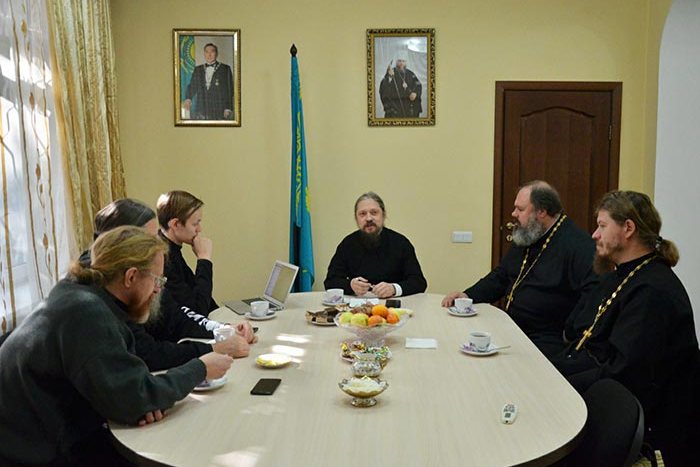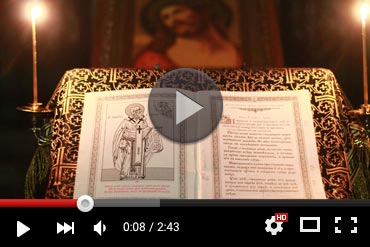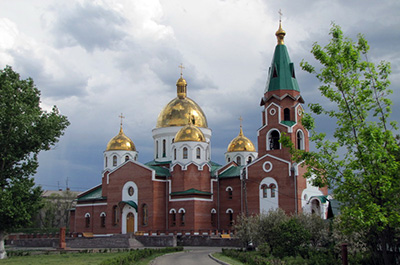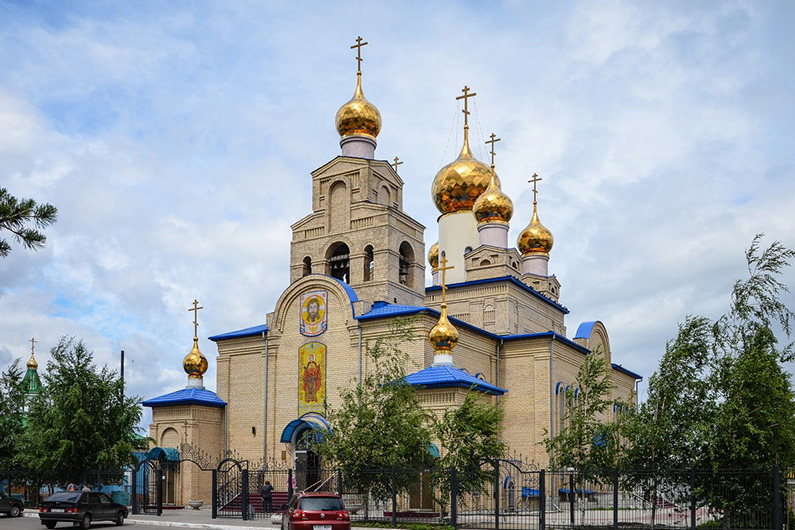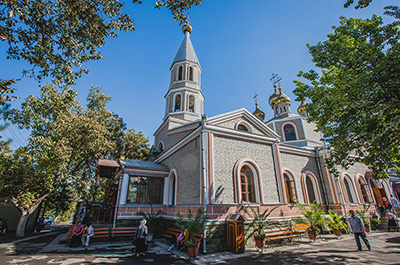
Speech by Metropolitan Alexander of Astana and Kazakhstan at the III International Scientific and Theological Conference “Timonov Readings”
- 04.06.2024, 17:44
- Новости на английском языке

Your Reverence, Father Gennady!
All-honorable fathers, dear brothers and sisters!
CHRIST IS RISEN!
With the Easter hymn of the Savior’s victory over non-existence, I greet the organizers and participants of the III International Scientific and Theological Conference “Timonov’s Readings”.
The current year for the Kustanay region turned out to be rich in memorable dates. We remember a number of spiritually and historically significant events - 140 years since the opening of the first independent parish at St. Nicholas Church in the city of Novo-Nikolaevsk (as modern Kostanay was called until 1895); 130 years of the founding of the Iveron monastic women's community in Novo-Nikolaevsk; 115 years of the creation and consecration of the Church of Constantine and Helena; 110 years since the establishment of the Kostanay Vicariate of the Orenburg Diocese and 20 years since the consecration of the main temple of the Kostanay Diocese - the Cathedral in the name of Equal-to-the-Apostles Tsars Constantine and Helena. Today's Timon readings, which are a landmark church-social and scientific event of the Kostanay diocese and, in general, of the entire Metropolitan District, are dedicated to discussing topics related to these special dates.
Knowledge of historical disciplines is valuable not only because it helps people analyze and understand the past, but mainly because it opens the way to the future. If society does not have a correct, objective view of the events of past eras, it cannot navigate the present and move forward, follow the path of development. The famous philosopher Cicero said that history should educate: “Historia – magistra vitae” (“History is the teacher of life”). If secular historical science has pedagogical power and helps a person find answers to important questions of existence, then this position is even more true in relation to church history. You and I, hierarchs, clergy, Orthodox historians and local historians, are called to help people learn spiritual lessons from the past, find support in their native Orthodox faith, learn to resist evil and overcome trials. The study of the church past is also valuable because it connects us with the ascetics of piety, with confessors and martyrs. There is an interesting discussion on this topic by the famous theologian and religious philosopher of the twentieth century, Archpriest Georgy Florovsky: “The purpose of studying history is not to establish objective facts - dates, places of action, numbers, names and the like. This is just the necessary preparation. The main task is to meet living people.” When you read the lines of archival documents, visit historical places, look at old photographs or hold in your hands the things of blessed church leaders, you get a feeling of living, direct communication with them, examples of their sacrificial service to Christ are more clearly perceived, the events of the past appear before your mind's eye with all their obviousness and clarity. For an Orthodox researcher, church history is an area of special, reverent attitude, since the historical life of the Holy Church, that same mystical Body of Christ, of which the researcher himself is a part, is explored.
If at the church-wide level, representatives of academic science have done a lot in relation to historical research, then at the local, regional level in the field of history and local history there are still many “blank spots”. Individual printed publications and publications on websites look like small islands in a sea of the unexplored. I consider it necessary that in the dioceses of the Kazakhstan Metropolitan District the clergy and laity actively participate in research on their local topics close to them - study the past of churches, parishes, and monasteries. Moreover, they would collect and analyze not so much the features of church architecture or information about other material data, but the most important thing in the Church - the history of the people who built these churches, prayed under their arches, saved shrines from desecration, and gave their lives for Orthodoxy. Local church history has great spiritual and educational potential. For example, if you invite the average Kazakh citizen to “talk about God” or “about the Bible,” then such an appeal is unlikely to evoke a lively response and interest. But if you talk to a person about their native places, about shrines and their history, about the traditions kept by their ancestors, this means touching a very thin string in the soul of our person. Moreover, this conversation can be either direct or in absentia - through books, articles, publications on social networks, short videos and documentaries. Revealing to people the meaning of local church history means revealing the creative meaning of the Church of Christ on earth, and on a specific one - our native land. I have repeatedly witnessed this in my life and work. Currently, a serious challenge to the moral health of society is the distortion and falsification of history and the spread of pseudo-values, which contradict the centuries-old spiritual traditions of our people and have a destructive effect on the minds and hearts of people, especially the younger generation.
Therefore, today, more than ever, the consolidation of the clergy and scientists, government officials and creative intelligentsia is necessary - it is necessary to unite all healthy social forces in order to form the correct cultural and information space as opposed to pseudoculture and pseudoscience.
We have a lot of work ahead, dear fathers, brothers and sisters. May our Lord Jesus Christ, who revived us by His resurrection to a living hope (1 Pet. 1:3), strengthen our strength so that you and I can proclaim the truth at all times and in all places where the Lord determines for us to live and work. I wish the organizers and participants of the Timonov readings successful work.
CHRIST IS RISEN! – TRULY IS RISEN!


